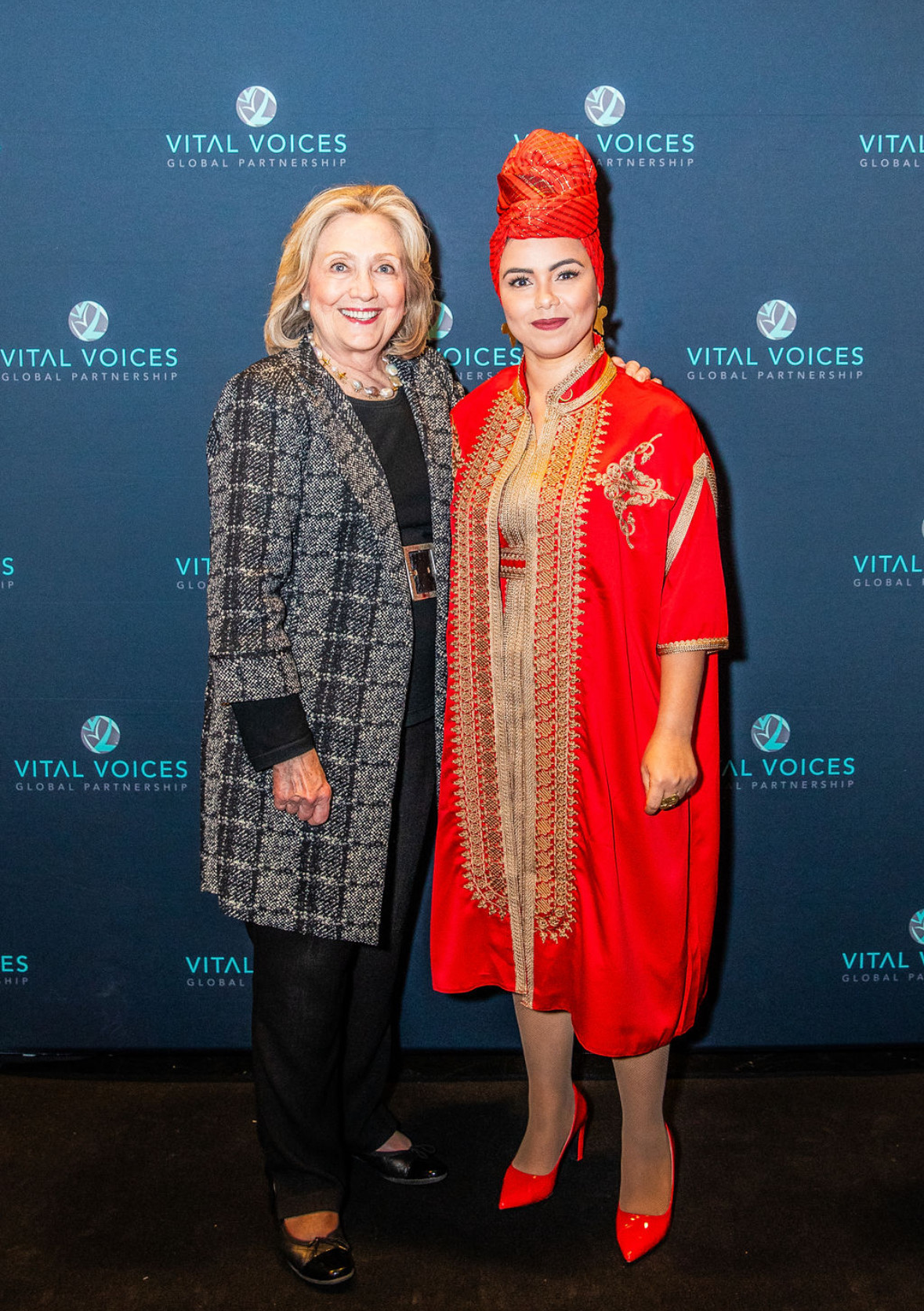On May 30th, Tunisian human rights activist Aya Chebbi was honored at the Kennedy Center in Washington D.C as a Vital Voices Global Leadership Honoree. In the presence of founder and former US Secretary of State Hillary Clinton, Aya was commended at the 23rd annual global leadership awards for her tremendous accolades and tireless activism as a Pan-African diplomat championing young women’s political leadership. She was honored alongside Honor Nobel Laureate Maria Ressa, Marshall Islands President Hilda Heine, SafeCity, Activist Nika Kovač, and Colombian Environmental Minister Susana Muhamad. Since 1997, Vital Voices has served as an international non-profit founded on the principle that fighting global crises begins with accountability-backed investments in women leaders.

Alongside presentations by Vital Voices and fashion icon Diane Von Furstenberg, Currently the founder and president of the Nala Feminist Collective (Nalafem), Africa’s largest multigenerational platform of women politicians and activists united in the pursuit of transformative feminist leadership, Aya first rose to prominence as a leading voice for democracy during the Tunisian Revolution of 2010-2011, which toppled a 23-year dictatorship.
A tribute of Aya’s work was shown at the gala
Beyond serving as the first-ever African Union Special Envoy on Youth and the youngest diplomat at the Chairperson’s Cabinet, Aya has sat on the World Refugee Council and Oxfam Independent Commission on Sexual Misconduct, among others. Below is a Q&A with Aya herself detailing the motivation and work behind her activism, as well as what the prestigious Vital Voices award means in her own words.
- You are the founder and president of the Nala Feminist Collective (Nalafem), Africa’s largest multigenerational platform of women politicians and activists. What prompted you to found this organization?
I dream of an army of women to take charge of moving Africa forward, into a new model of leadership and consciousness. Working across Africa with women political leaders for the past decade, made me realise that only by bringing us in a Pan-African platform we can strategize, provide support to rise into politics and pave the way for more young women in leadership in influence and number. For this transformation, we need the changemakers inside the political system and activists outside the system to work together and move the collective mission for the liberation of African women and girls. So, three years ago, I invited 17 women to a retreat to build a five year strategy for this mission and today we have 100 women leaders in the platform from diverse generations and impacted over 25,000 young women from 40 African countries.
- What is the biggest challenge to women in Africa these days?
There are multilayered and intersectional challenges women face today in Africa from gender-based violence to economic inequality to school dropout and period poverty. But I would say the underlying challenge is the social norms that gives permission for patriarchy to control women’s bodies and roles and deny women’s contribution to society as equal humans.
- Tell us about some of the amazing progress you have been involved with in empowering youth in Africa?
I am proud of my mandate as the first African Union Envoy on Youth galvanizing young people across Africa and impacting over one million youth. Being able to build a Youth Office at our Pan-African union that has become a destination of any young African to be heard and meaningfully engaged is crucial. The advocacy efforts I co-led with young peacebuilders and activists yield its results in increasing youth appointments in public service and government, passing Youth, Peace and Security policies continentally and nationally and scaling solutions and funding for job security and education.
- How does it feel to be honored at the Kennedy Center in Washington DC for your work which began during the Arab Spring, and to be in the company of other strong female leaders including Hillary Clinton and Diane Von Furstenberg?
Being in community with other female leaders is a fuel to continue the work we do, to know that we’re not alone, that we’re winning together because from our different spaces we are advancing humanity into a direction of equity and peace. It feels fueling, refreshing, inspiring to be supported, recognized and loved. When we’re emersed in organizing and action, we find ourselves missing on celebrating our impact, small and big. Sometimes you walk one step froward and ten steps back and feel on the verge of giving up but it’s moments like this when you know giving up is not an option, we must rise.
